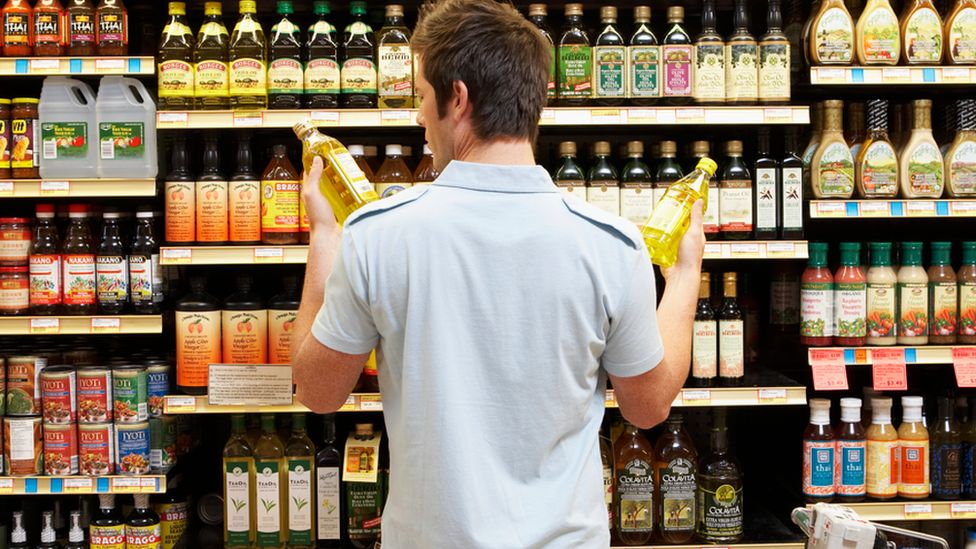
By Shanaz Musafer
Business reporter, BBC News
Supermarkets have been told to make their pricing clearer to help shoppers find the best deals.
The Competition and Markets Authority (CMA) said unclear pricing could be hampering people’s ability to compare products.
The watchdog said retailers should “make the necessary changes” and also called on the government to bring in reforms to tighten the law itself.
It added that soaring food prices were not being driven by weak competition.
The CMA’s findings follow a review into how grocery retailers display unit pricing information in-store and online.
Under current rules, most products should be priced per unit either by kilogram or by litre. But the CMA found examples of retailers using grams and millilitres.
It said that in some instances the same type of product was priced per unit using different metrics, “making it hard for shoppers to compare prices on a like-for-like basis”.
For example, it found tea bags priced per 100g for some products and others priced per tea bag.
It also discovered a lack of transparency with missing or incorrectly calculated unit pricing information both in store and online. Examples include a 250ml bottle of handwash that was sold for £1.19 but unit priced at £476.00 per 100ml.
“We’ve found that not all retailers are displaying prices as clearly as they should, which could be hampering people’s ability to compare product prices,” said Sarah Cardell, chief executive of the CMA.
“We’re writing to these retailers and warning them to make the necessary changes or risk facing enforcement action.”
The CMA also said that some of the problems “stem from the unit pricing rules themselves”, which fall under the Price Marking Order.
It said the rules allowed “unhelpful inconsistencies in retailers’ practices and leave too much scope for interpretation”.
While food price inflation remains at historically high levels – 17.3% in June – the watchdog said evidence it had collected indicated that competition issues had not been driving this.
However, it added that not everyone was able to benefit fully from strong competition, “particularly those who cannot travel to large stores or shop online, and therefore may rely on higher-priced convenience stores”.








